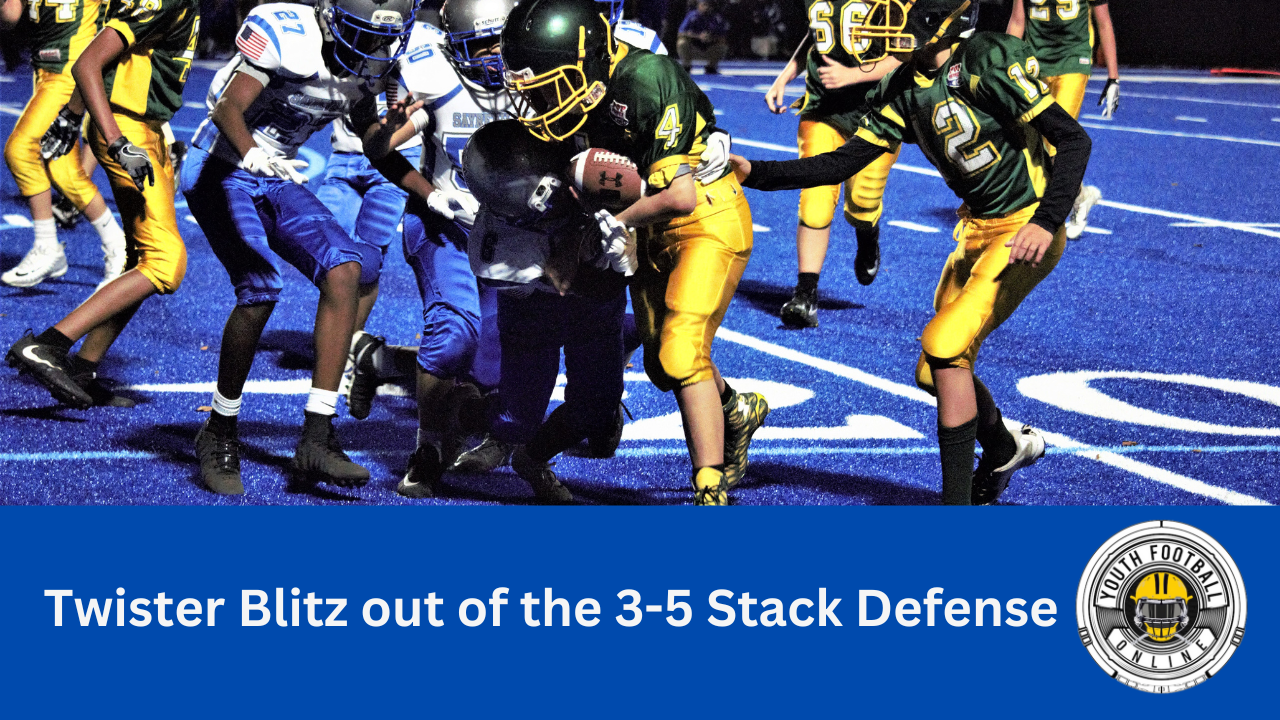Interview with Youth Sports Psychology Expert Richard Stratton, PhD.
Here’s our exclusive interview with youth sports psychology expert Professor Richard Stratton, PhD. We met Dr. Stratton at the Virginia Tech campus and were eager to get his feedback on the following questions related to youth football athletes, parents and coaches:
YFO: What is winning in youth sports?
Dr. Stratton: Winning in youth sports is when kids give good effort. You always want the kids to compete but all you can ask for is effort. It’s about doing your best because most of the time a single player doesn’t have control over an outcome of a game.
YFO: What are common mistakes made in youth sports? How do we correct them?
Dr. Stratton: A common mistake that occurs in youth football is coaches will not spend enough time on fundamentals. They will work more so on triple reverses and other gimmicky plays rather than focus on fundamentals. Coaches need to focus on teaching the fundamentals of the game. Keep it simple and work those fundamentals.
Another major mistake is that coaches will do the same drills every single practice. Kids will lose interest very quickly if practices are very repetitive. Change things up in practice weekly to keep the kids focused. Also, keep things brief if you are too long winded because kids will lose focus.
YFO: Can you offer some tips for parents of youth athletes?
Dr. Stratton: It’s important to understand that mistakes happen. They really should encourage the kids rather than really getting on the kids about mistakes. It’s important for parents to know that win or lose the game is over and they shouldn’t dwell on it. Always encourage improvement but understand that life goes on.
Parent and coach interaction is also very important. Always support the coaches and try not to tell them something different than their coach is teaching them. It’s really hard on kids to hear one thing in practice, then hear something different at home. As parents, it’s important to support the team, coaches, organization, and the other players. It is vital that parents are committed. Do your best to get the kids at practice consistently and on time.
YFO: How do you build confidence in your youth athletes?
Dr. Stratton: Always encourage the kid. Always be positive but make sure your kids compete. Confidence is developed by practice repetition. Always challenge your players. Always make sure your players are accountable for their job. An individual player can’t control what the other players do, so each individual is responsible for doing their job. Encouragement is the best way to develop confidence in a player.
YFO: What is the best way to teach handling adversity?
Dr. Stratton: Mistakes are going to happen. There is nothing you can do to change what happened, move on. Coaches have to lead by example when things aren’t going well for your team. If a coach cannot maintain his composure then the players will maintain their composure. One mistake is not going to win or lose a game. Losing a game can be the result of various mistakes throughout the game. As a coach it is vital that you do not make a bad situation bigger than it really is. Stay level headed and only worry what you can control.
YFO: What is the best way to motivate youth football players?
Dr. Stratton: A) It’s about an appropriate use of goal setting. Create a sequence of goals for kids, with the understanding that goal setting is a methodical process. You’ll have long term goals, whether it is winning your league’s championship or winning a majority of your games. Visualize it as steps, short term intermediate goals- step by step- one week at a time to reach your long term goal.
B) Need to have an evaluation process to understand each kid’s skill set.
C) Challenging kids, but they must be realistic. Attainable goals. Risk taking, pushes the kids to keep working. Changing up drills, so the practice isn’t the same everyday. Going to coaches clinics will really helps with creativity. Youtube is great as well when you can’t get to a clinic.
YFO: Should youth athletes use social media?
Dr. Stratton: Young kids use social media all the time- they need to understand that the material gets out. Some kids may need to turn off their twitter accounts. It is going to be tough for those kids that are getting early exposure. Kids should not specialize early, stay in cross training, participate in multiple sports.
YFO: What are the benefits for playing youth football/ sports?
Dr. Stratton: It’s fun. Gives them an opportunity to learn skills. Gives them a relatively safe environment to compete. Some fitness, physical activity for kids to keep them away from the keyboard. You can help them to understand why being obese is counterproductive to not only playing sports, but their entire lives.
YFO: With distractions abundant, How can a youth athlete be mentally strong?
Dr. Stratton: The last few years of our research at Va Tech was on mental toughness. We aimed to get a sense of where mental toughness was coming from, was it something that people developed or was it something people were born with. Four components were as follows:
A. Self belief.
B. Focus your attention. Kids aged 6-12 tend to be over-inclusive or have trouble focusing. Most sports require at least some degree of narrow attention. If you’re a lineman, you have a primary blocking assignment. Making it easy, gets the kids to focus. Make the systems easy. Teach what they need to be attending to. Are defensive linebackers jumping around, is that information that a youth football athlete needs. Always distractions.
C. Dealing with pressure.
D. Motivation.
Many thanks to Dr. Stratton for his time- share your thoughts below.










